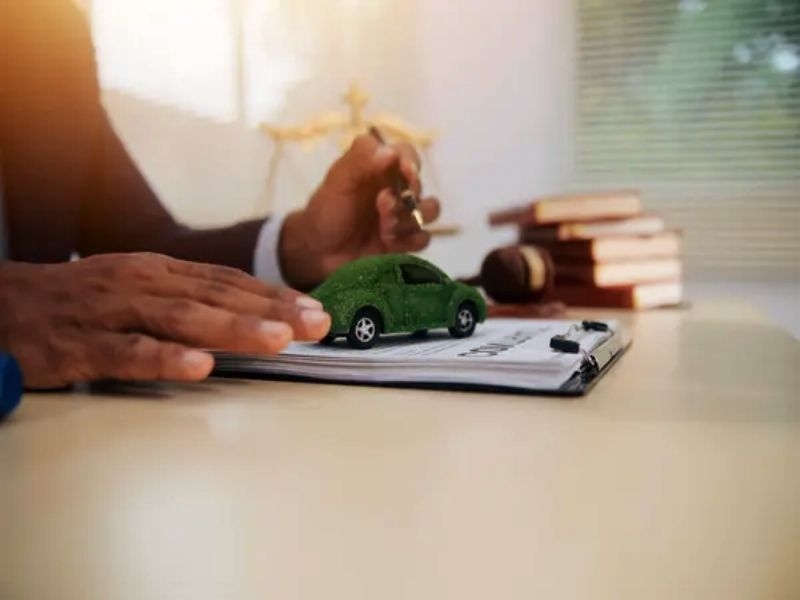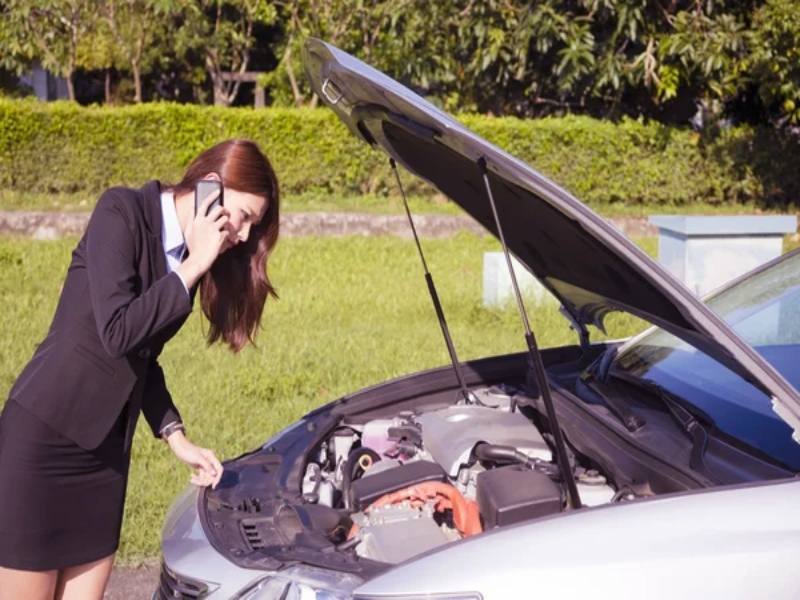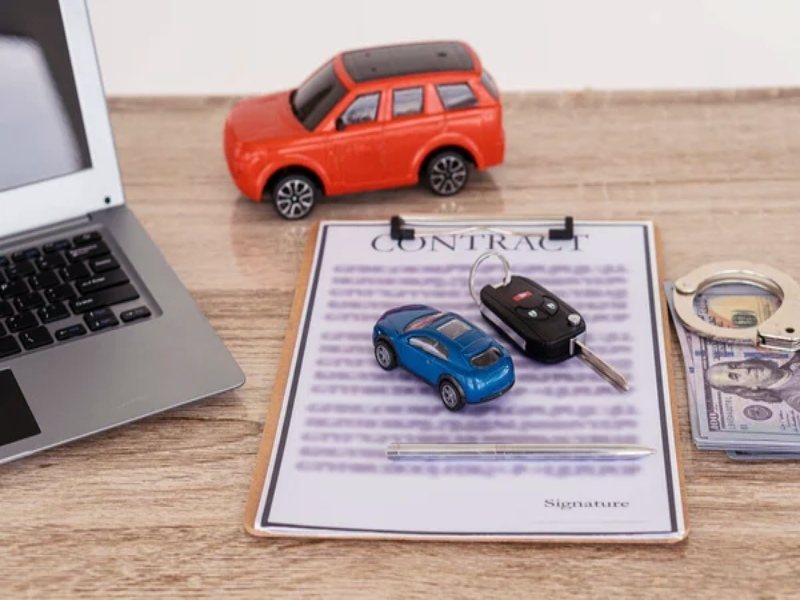Florida Lemon Law: A Complete Guide to Your Rights and Claims
When you buy a new car, you expect it to be reliable and safe. But what happens when your shiny vehicle turns out to be a lemon? Lemon Law Lawyer Florida is here to help! It’s designed to protect consumers from defective vehicles, giving you options if you find yourself dealing with constant problems. This article will guide you through everything you need to know about the Lemon Law in Florida, from what qualifies as a lemon to the steps you can take if you’re stuck with one. Let’s dive into this vital topic and ensure that your rights as a consumer are safeguarded!
The Lemon Law in Florida protects consumers who purchase defective vehicles, allowing them to seek a refund or replacement if certain conditions are met. This law applies to new vehicles with significant defects that occur within the first 24 months or 24,000 miles of ownership, ensuring that consumers have recourse for faulty automobiles.

Overview of Florida Lemon Law
Florida’s Lemon Law extends vital protections for anyone who purchases or leases a new vehicle that doesn’t meet acceptable quality or performance standards. This law, officially known as the Motor Vehicle Warranty Enforcement Act, was created to ensure that consumers are not left with defective vehicles. It grants relief to individuals facing unfortunate situations where their purchased vehicle has persistent problems.
A “lemon” is defined as a vehicle that has significant issues that substantially limit its usability, value, or safety and which the manufacturer or seller fails to repair even after multiple attempts.
Considering the implications of being sold a lemon can be alarming. Since the law’s implementation in 1988, it has led to over 4,000 vehicles being repurchased or replaced—a testament to the law’s importance and effectiveness in protecting consumer rights. This assertive track record serves as both a cautionary tale and a source of empowerment for vehicle owners aware of their legal protections.
As we explore further into the specifics, it’s essential for consumers to understand which types of vehicles qualify under this law and what steps they can take should they find themselves dealing with lemon-related issues.

The Florida Lemon Law applies primarily to new vehicles—those purchased or leased by the consumer for personal use. However, not all vehicles will be covered; things like used cars, trucks damaged after purchase, or those sold “as-is” typically fall outside the law’s protection. Consumers must exercise diligence and be knowledgeable about their specific situations before embarking on claims related to lemon issues.
Understanding the intricacies of Florida’s Lemon Law enables consumers to navigate their rights effectively. Knowledge about what constitutes a lemon and the legal process for filing a claim empowers consumers in making informed decisions when faced with potential automotive dilemmas. This education can transform frustration into actionable steps toward resolution.
Grasping these details helps lay a foundation for determining how effectively you may pursue claims if necessary. Now, let’s turn our attention to identifying the various types of vehicles that fall under these important protections.
Vehicles Covered Under the Law
The Florida Lemon Law is designed to protect consumers who purchase new vehicles that turn out to be defective. Most notably, this law primarily covers new cars, trucks, and SUVs purchased or leased specifically for personal, family, or household use. This means if you bought a vehicle meant for enjoyment—something to take you on family vacations or your daily commute—it likely falls under this law’s protections.

However, it’s worth noting that there are exclusions to be aware of.
- New Cars, Trucks, and SUVs: Only vehicles intended for personal use qualify. This includes everything from sedans to heavy-duty trucks that can handle off-road adventures.
- Demonstrators: Vehicles used by dealers to showcase features to potential buyers but still need to be under warranty at the time of sale.
- Lease-Purchased Vehicles: If you’ve leased a vehicle but then opted to purchase it during or at the end of the lease term, you’re in luck! These vehicles are also protected.
- Motorhomes: Motorhomes are included as long as they’re classified under the laws governing consumer protections. This excludes general recreational vehicles like trailers or fifth wheels.
Essentially, if you find yourself with a vehicle that’s giving you more headaches than joy and it fits within these categories, you’ve got a case worth pursuing.
Understanding these details provides a solid foundation for tackling the next important aspect of your rights—recognizing which signs indicate a defective vehicle and how they play into your claims process.

Identifying Defective Cars
A defective car is one that has issues impacting its safety, usability, or overall value. Typically, these defects are not mere inconveniences; they are problems that could compromise your driving experience and, in some cases, pose serious safety risks. For instance, when brakes fail to function properly or an engine stutters and stalls unexpectedly, the stakes become profoundly higher.
Commonly reported challenges include faulty brakes, significant engine malfunctions, and electrical glitches. These issues can sometimes manifest suddenly or develop gradually over time—making it crucial to remain vigilant and recognize the signs early on. If you find yourself repeatedly taking your car back to the dealer for the same problem, this may indicate a substantial defect under Florida’s Lemon Law provisions.
Remember, the Lemon Law stipulates that these defects must emerge within the first 24 months of ownership for you to file a claim. It’s unreasonable to expect consumers to deal with major repairs shortly after purchasing their vehicles. To meet the law’s criteria, you must provide evidence of reasonable attempts to fix these issues. This typically involves three or more unsuccessful repair attempts for the same defect or having your vehicle out of service for at least 30 cumulative days due to repairs.

Understanding these key aspects can help set the stage for taking action. Identifying and documenting issues meticulously will serve as your strongest defense when navigating the claims process.
Tracking details such as when each problem occurs and how often you visit the mechanic creates invaluable records that bolster your case. Consider keeping a dedicated logbook or using an app to record every visit; this allows you to compile evidence that proves persistent failures, supporting your argument that the vehicle is defective.
Being informed empowers you in situations where your vehicle demonstrates potential defects, equipping you with the tools needed to navigate the claims process effectively. Now, let’s shift focus to how consumer protections come into play in ensuring your rights are upheld throughout these circumstances.
Consumer Rights Explained
Under Florida law, as a consumer, you have concrete protections that empower you when dealing with defective vehicles. If you buy a vehicle that turns out to be a lemon, you have options. The law stipulates your right to repair, replacement, or refund. Imagine being in a situation where your brand-new car breaks down repeatedly, draining your patience, time, and money; this law ensures that you won’t bear those costs alone.

As one consumer noted, “I didn’t have to pay a dime for repairs, thanks to the Lemon Law.” Their experience highlights the real-world implications of these rights because when the manufacturer fails to provide a reliable product, consumers can turn to the law for support.
If the manufacturer cannot rectify the defect after a reasonable number of attempts—often defined as three tries or more—you are entitled to request either a replacement vehicle or a full refund. This reimbursement should cover not just the purchase price but also incidental expenses such as taxes and registration fees. Essentially, it positions you to walk away from a problematic purchase without financial loss.
However, while the rights are clear, executing these claims might seem daunting due to the paperwork involved.
You must ensure all necessary documentation is meticulously maintained. This includes service records showing how often the vehicle was brought in for repairs and any correspondence you’ve had with the manufacturer. Having everything organized can help streamline your claim process significantly.

Benefits of Knowing Your Rights
Familiarizing yourself with these legal entitlements not only equips you to tackle potential disputes effectively but also gives you confidence in handling conversations with manufacturers. If they are uncooperative or dismissive about your issues, knowing your rights can strengthen your position and make it harder for them to disregard your claim.
Remember: Document everything! Having detailed notes can serve as concrete evidence supporting your case.
Florida’s Lemon Law stands as an essential safeguard for consumers against defective vehicles, ensuring you’re not trapped in a cycle of unsuccessful repairs but can reclaim your investment and peace of mind.
Understanding these aspects sets the stage for navigating the next steps in protecting your interests and making formal requests for resolution.

Filing a Lemon Law Claim
Filing a claim under Florida’s Lemon Law entails a structured and meticulous approach. It’s not just about declaring your vehicle defective; it’s about arming yourself with the right information and documentation to strengthen your case. Each step matters and can make the difference in receiving a resolution.
Step-by-Step Guide
The first step is notifying the manufacturer. This isn’t merely a casual message; you need to send a formal written notice using certified mail, ensuring that it comes with a return receipt requested. This document serves as proof that you’ve contacted the manufacturer about your issues. Include all relevant repair invoices and a detailed description of the problems you’ve been facing with the vehicle. Think of this as building your own case, laying down the groundwork that will support your claims.
Once the manufacturer receives that notice, they are obligated to make one final repair attempt. This step is critical because it sets into motion their responsibility to address the issues highlighted in your notice. You should schedule this attempt within 10 days of the manufacturer receiving your notice, which must also be completed within another 10 days afterward. Be sure to keep a record of this communication and any repairs performed; documentation is key in these scenarios.
If, after this final repair, your vehicle still does not comply with performance standards or remains defective, it’s time to take things up a notch by requesting arbitration. This request needs to be filed through the Florida New Motor Vehicle Arbitration Board. It might feel overwhelming at times, but remembering that keeping thorough documentation of all communications and repairs throughout this process will serve you well.

If you’re feeling uncertain at any point in the process, don’t hesitate to seek legal counsel. Having experienced guidance during these steps can bolster your efforts substantially, providing clarity on what documents or information you may still need to further substantiate your claim.
As you navigate these important steps, it’s crucial to understand the resources available for support during this process, ensuring you’re never alone in protecting your rights. Next, we’ll examine some options for legal guidance that can make all the difference in your claim journey.
Legal Support Options
Consulting with a lawyer who specializes in Lemon Law cases can provide invaluable assistance in your journey toward resolving a vehicle issue. Hiring a seasoned attorney means you have someone in your corner who understands the intricacies of the law and knows how to leverage them in your favor. These professionals can help decipher complex legal jargon that may be daunting for an average consumer, ensuring you don’t get lost in the details and nuances of your case.
For example, having representation during arbitration is critical, as these proceedings often involve rigorous negotiations with manufacturers and dealers who may not prioritize your interests.
While it’s possible for individuals to navigate the process independently, relying on legal expertise significantly boosts the chances of success. Testimonials from consumers reveal that those who utilized legal help reported quicker resolutions and higher compensation amounts. The expertise of a knowledgeable attorney can mean the difference between being offered a mediocre settlement or successfully receiving a full refund or replacement vehicle.

According to recent findings by the Florida Bar, Lemon Law cases handled by attorneys see success rates nearing **80%**—a compelling statistic that underscores the effectiveness of legal representation. It’s easy to become overwhelmed by the process, especially if you’re unfamiliar with relevant laws and regulations surrounding Lemon Law claims.
Moreover, many attorneys offer free consultations where you can discuss your circumstances without any initial financial commitment. This can be an excellent opportunity to assess your case and determine if pursuing legal assistance is worthwhile.
As you consider your options, weigh the benefits carefully; partnering with an experienced lawyer could ensure clarity in understanding your rights while helping you feel confident about how to move forward with your claim. This leads us to explore other pathways that may aid in resolving vehicle-related issues effectively.
Alternatives to Lemon Law Claims
Not every frustrating experience with your vehicle needs to culminate in a full-fledged Lemon Law claim; there are various paths you can take. Knowing these options ahead of time might save you time and minimize stress, allowing you to focus on getting your vehicle back on track.
One of the most straightforward options is to make use of warranty repairs. If your car is still under warranty and you discover a defect, reaching out to the dealership or manufacturer should be your first step. They often have specific protocols in place to handle such issues, and many times, they can resolve the problem at no cost to you. This means fewer headaches and quicker fixes without the added complication of litigation.

Take note of the dates on your warranty! Acting immediately once you notice a defect ensures that you are protected and can leverage your rights effectively.
However, if warranty repairs don’t meet your expectations, exploring other alternatives may further assist you.
Another robust option is to reach out to consumer protection agencies. In Florida, entities like the Department of Agriculture and Consumer Services offer mediation services that can help resolve disputes between consumers and manufacturers before formal claims are filed. This approach fosters improved communication and can lead to satisfactory outcomes without escalating tensions. Think of it as a gentle nudge for the manufacturer, encouraging them to address your concerns proactively rather than defensively.
It’s essential to gather documentation outlining your vehicle’s issues thoroughly before contacting these agencies. Organized records not only bolster your position but also facilitate smoother communication regarding your problem.
Yet, if all else fails and the issue persists unresolved, small claims court stands as a viable alternative for tackling less significant automotive problems inexpensively.

Small claims court can be an accessible route for individuals looking to resolve claims involving modest sums without engaging attorneys—saving you money in the process. The procedures are designed for efficiency, meaning you can usually expect swifter resolutions than those encountered through traditional legal avenues.
Recognizing that there are myriad options available beyond simply filing a Lemon Law claim expands your toolkit when faced with manufacturing dilemmas while empowering you to make choices that prioritize both resolution speed and cost-effectiveness.
With these paths laid out, it’s important to remain updated on how consumer rights legislation evolves as well as the protections it offers.
Updates and Changes to Legislation
The world of lemon laws can shift like the tides, making it essential for vehicle owners to keep their finger on the pulse of regulatory amendments. In recent years, Florida has enacted significant updates that enhance consumer protections and respond to the evolving marketplace. One notable update in 2021 extended protections to leased vehicles. This move marked a pivotal shift, acknowledging that leased cars can pose similar challenges as purchased ones, thus offering enhanced rights to lessees facing lemon issues.
By expanding the scope of protection, Florida lawmakers recognized that consumers should not be left vulnerable simply because they opted to lease rather than purchase.
Moreover, a significant change took place in 2023 when the repair timeline for manufacturers increased from 15 to 30 days. This adjustment provides manufacturers with more leeway to rectify defects while also offering consumers an extended period before considering further action. While some may see this as a potential setback, it reflects an understanding that repairs can take longer due to parts shortages or complex mechanical issues.

Consider this scenario: a consumer faces difficulties with a persistent vehicle issue that needs addressing. Thanks to adjustments made in legislation, they now have a greater allowance of time for repairs without rushing into claiming lemon status; giving both parties an opportunity to resolve matters amicably.
As consumers navigate these updated regulations, it’s important for them to remain vigilant and proactive regarding their rights.
Many have experienced benefits from these changes; one relieved consumer pointed out, “Thanks to recent changes, our lease was protected under this law.” Such sentiments emphasize the tangible impacts these updates are having on Floridians’ lives and their vehicular satisfaction.
Ultimately, staying informed means more than just being aware of specific updates; it’s about equipping oneself with the knowledge necessary to advocate effectively when issues arise. Regularly reviewing your state’s lemon law provisions and understanding how changes impact your rights empowers you as a consumer and fosters confidence in making car-related decisions.
In summary, Florida’s lemon law updates are designed to better protect consumers while navigating the complexities of vehicle ownership, ensuring that all drivers know their rights. Staying informed is crucial to successfully advocating for your interests.
How long do I have to file a lemon law claim in Florida?
In Florida, you generally have two years from the date of the vehicle’s original purchase to file a lemon law claim. This timeframe is crucial because it ensures that consumers address significant defects or issues within a reasonable period, promoting efficient resolution. Statistics show that timely filing can significantly enhance a consumer’s chances of receiving a favorable outcome in their claim.

What documentation or evidence is required when filing a lemon law claim in Florida?
When filing a lemon law claim in Florida, essential documentation includes a copy of the vehicle purchase agreement, any repair orders, and correspondence with the manufacturer or dealer regarding the vehicle’s defects. Additionally, it’s beneficial to keep records of phone calls and any warranties provided. Statistics show that claims are more successful when comprehensive documentation is presented, as it strengthens your case by clearly showing the history of issues and attempts for resolution.
Can the lemon law apply to used cars bought in Florida, or is it limited to new vehicles?
Yes, the Florida Lemon Law can apply to used cars, but only under certain conditions. To qualify, the vehicle must still have a warranty and the defects must significantly impair its use, value, or safety. According to recent statistics, approximately 10% of used vehicle sales in Florida involve lemon law claims, highlighting that consumers do have protections for pre-owned vehicles as long as they adhere to the law’s requirements.
What qualifies as a ‘lemon’ under Florida’s lemon law?
Under Florida’s lemon law, a vehicle qualifies as a ‘lemon’ if it has a substantial defect that is covered by the manufacturer’s warranty, which significantly impairs its use, value, or safety. This defect must occur within the first 24 months or 24,000 miles of ownership and persist after multiple repair attempts by the manufacturer or authorized dealer—typically at least three. Statistically, about 1 in 100 vehicles sold may be classified as lemons, highlighting the importance of consumer awareness regarding their rights under this law.

What steps must I take to initiate a claim under Florida’s lemon law?
To initiate a claim under Florida’s Lemon Law, first ensure that your vehicle qualifies by experiencing repeated issues not resolved after a reasonable number of attempts (generally three attempts or a significant out-of-service period). Next, notify the manufacturer in writing about the defect, giving them one final chance to repair it. If unresolved, you can file for arbitration with the Florida Division of Consumer Services or pursue legal action in court. According to recent statistics, approximately 70% of disputes resolve favorably for consumers who follow these steps diligently.

